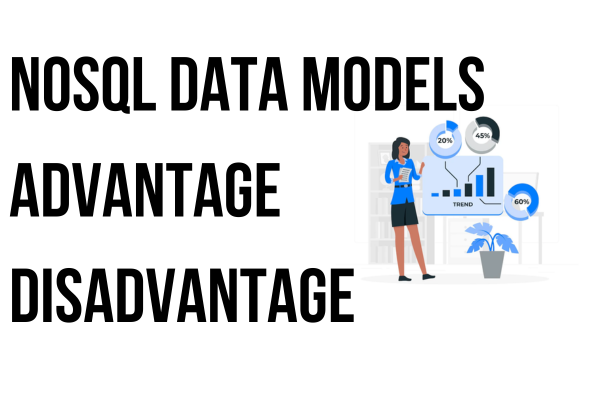NoSQL (Not only SQL) databases have emerged as an alternative to traditional relational databases, especially for handling big data and unstructured data. NoSQL data models, such as key-value, document, columnar, and graph, provide flexible and scalable solutions for specific use cases. These models emphasize horizontal scalability and are often used in web applications, real-time analytics, and content management systems.
Advantages of NoSQL Data Models:
- Scalability and High Performance: NoSQL databases are designed to scale horizontally across multiple nodes, allowing for seamless handling of large amounts of data and high transaction volumes. They provide excellent performance for read and write operations, making them suitable for web-scale applications with rapidly changing data requirements.
- Flexible Data Modeling: NoSQL data models, such as document, key-value, columnar, and graph databases, offer flexible schema designs. They allow for dynamic and evolving data structures, making it easier to accommodate diverse and unstructured data types. This flexibility enables agile development and faster iterations in data modeling.
- Horizontal Data Distribution: NoSQL databases employ distributed architectures, enabling data to be distributed across multiple servers or clusters. This distribution provides fault tolerance, high availability, and the ability to handle large workloads across multiple nodes, ensuring system resilience and scalability.
- High Availability and Fault Tolerance: NoSQL databases prioritize high availability by replicating data across multiple nodes. In the event of node failures or network issues, the database can continue to operate without interruption, ensuring data availability and minimizing downtime.
- Rapid Development and Prototyping: NoSQL databases offer a developer-friendly environment, often providing simple APIs and flexible data models. This allows for quick development and prototyping, as developers can focus on building applications rather than complex data schemas and migrations.
Disadvantages of NoSQL Data Models:
- Lack of Standardization: NoSQL databases lack a standardized query language, making it challenging to switch between different database systems or integrate with existing systems that rely on SQL. Each NoSQL database may have its own specific APIs, query languages, and data access mechanisms, requiring additional learning and development effort.
- Limited Support for Complex Queries: While NoSQL databases excel in handling simple read and write operations, they may face limitations when it comes to complex queries involving multiple data relationships. The lack of join operations and the denormalized nature of some NoSQL models can make complex data retrievals more challenging.
- Data Consistency: NoSQL databases often prioritize scalability and performance over strong consistency guarantees. In some cases, NoSQL databases may provide eventual consistency, meaning that data updates may take time to propagate across all replicas, leading to potential data inconsistencies during this period.
- Lack of Maturity in Some Models: While some NoSQL models have been in use for many years and are mature and stable, others are relatively new and may lack the same level of robustness and community support. This can result in potential stability issues, limited documentation, and fewer available tools and libraries.
- Data Migration and Transformation: Migrating data from traditional relational databases to NoSQL databases or transitioning between different NoSQL models can be challenging. It often requires careful planning, data transformation, and potential application code changes, especially when dealing with existing systems that rely on relational data models.
Conclusion:
NoSQL data models offer significant advantages in terms of scalability, flexibility, performance, and rapid development. They are well-suited for handling large and dynamic datasets in distributed and highly available environments. However, the lack of standardization, limitations in complex querying, potential data consistency challenges, and varying maturity levels across different NoSQL models require careful consideration and evaluation. NoSQL databases are particularly beneficial for use cases involving real-time analytics, high-speed transactions, and applications that require flexible data models.





Leave a Reply